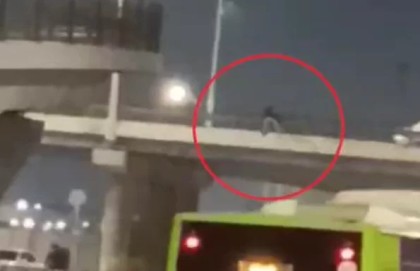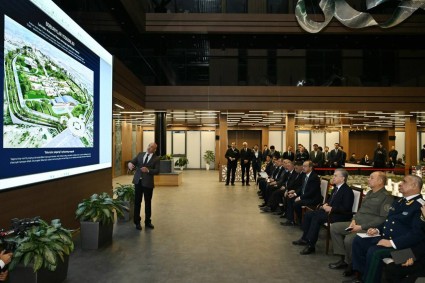The President Mirziyoyev signed a decree on November 18, approving a new program of steps in the field of environmental protection.
As reported earlier, according to the decree, proposals will be drafted before 2026 on the necessary organizational and technical steps to ensure the sustainable supply of natural gas to existing greenhouse farms in the city of Tashkent and the Tashkent province. According to the decree, the following directives have been given:
- analyze greenhouses' natural gas needs, as well as available capacity and grid connection options;
- conduct an inventory of the technical condition and capacity of gas distribution networks in areas where greenhouses are located;
- implement energy-saving heating technologies by exploring the potential for the efficient use of natural gas and alternative energy sources such as biofuels and solar energy;
- improve seasonal schedules, limits, and tariff mechanisms to ensure uninterrupted gas supply, and take steps to prevent interruptions in greenhouse operations.
By the end of the year, proposals will also be drafted to amend regulations for harsher accountability for failing to prevent emission of harmful substances into the atmosphere when using fuel oil and similar highly polluting fuels.
Starting from December 1, oversight will be toughened across the country to prevent the sale of AI-80 gasoline at gas stations, while providing the public with high-quality and ecofriendly gasoline.
Starting in December, the practice of restricting the movement of freight vehicles during peak hours will be implemented in Tashkent. The streets where this procedure will be introduced will be determined by the Ministry of Internal Affairs.
By March 2026, Environmental Performance Standards in Construction will be drafted, which provide for installation of background monitoring stations and online cameras by construction organizations at construction sites before the start of construction, as well as other environmental steps. These requirements must meet international standards.
By April 2026, a standard will be drafted, taking into account wind directions (wind rose) and speed, based on international experience. This will:
- determine the requirements for buildings and structures taking into account wind direction;
- take into account the location of buildings and structures and the passage of wind;
- determine the procedure for obtaining conclusions from construction, environmental and cadastral authorities before starting construction work.
Uzhydromet has been given directives to constantly study wind directions in Tashkent and disseminate information about wind directions to the general public through the media.
A National working group will be formed by the end of November 2025 to implement the “Green Tashkent” project.
The working group will coordinate steps to increase the area of вАЛвАЛgreen areas of protective and recreational importance in Tashkent, draft a modern landscape and urban ecosystem, renew irrigation and landscaping infrastructure, and introduce energy-efficient and digital monitoring solutions.
The working group will include officials of the Environmental Protection Committee, Tashkent city mayor's office, the Ministry of Construction, the Ministry of Economy and Finance, the Ministry of Higher Education, Science and Innovations, and other relevant ministries and departments.
A draft government resolution on the organization of the Tashkent City Forestry must be prepared before 2026. Thresolution must include:
- goals and main areas of activity of the Tashkent City Forestry;
- hiring staff and set up material and technical base of the forestry.
In addition to the above, the program shall also include the following:
- establishing a collegial voting procedure for considering permits for felling trees and shrubs for sanitary purposes;
- establishing 18 dendrological and 15 botanical gardens in the country;
- improving the activities of landscaping services and the state institution "Green Zone";
- evaluating the activities of the management staff of the Ecology Committee and conducting their certification;
- providing district (city) branches of the Ecology Committee with buildings and structures.
It should be noted that, based on this decree and the resolution signed on the same day, the Ministry of Ecology was removed from the government and transformed into an independent committee.
An Ecopolice was established under the Committee, and its officers were given the right to use physical force.
The Cabinet of Ministers, ministries and departments, and local mayor offices were strictly prohibited from adopting any form of document providing for the felling and transplanting of trees and shrubs.














